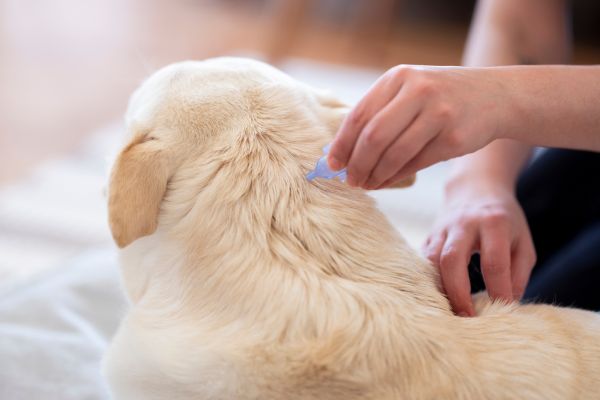Every pet owner dreams of a long, healthy life for their furry companion. But while love, cuddles, and a good diet are essential, there’s another often-overlooked aspect that plays a pivotal role in ensuring your pet’s well-being—preventive care for pets. Just as routine health checkups and early interventions keep humans healthy, preventive care helps pets avoid serious illnesses and enjoy a better quality of life. In this comprehensive guide, we’ll explore the significance of preventive care for pets and how it can transform your pet’s health journey.
Understanding Preventive Care and Why It Matters
Preventive care for pets refers to proactive health measures designed to detect and address potential medical issues before they become serious problems. These measures include regular veterinary checkups, vaccinations, parasite control, dental care, and proper nutrition. The goal is to catch diseases early, minimize long-term health risks, and save on costly emergency treatments.
Many pet owners tend to seek veterinary assistance only when their pet displays visible signs of illness. Unfortunately, by the time symptoms become apparent, the condition may already be advanced or more difficult to treat. Preventive care offers a way to break this cycle. It emphasizes routine monitoring and timely intervention, significantly increasing the chances of early detection and successful treatment of potential health issues.
The Role of Routine Veterinary Visits in Preventive Health
Scheduling regular vet visits is the foundation of effective preventive care for pets. These appointments allow veterinarians to assess your pet’s overall condition, monitor vital signs, and detect any subtle changes in behavior or appearance that might signal underlying health problems. Annual or biannual checkups are recommended, although older pets or those with existing health conditions may need more frequent visits.
During these exams, your veterinarian may perform blood tests, fecal exams, and urinalysis to check for infections, organ function, and other potential concerns. These diagnostic tools are invaluable for uncovering hidden conditions that might otherwise go unnoticed until they become serious.
Vaccinations: Building Immunity and Preventing Disease
Vaccines play a critical role in preventive care for pets by protecting them from dangerous and often contagious diseases. Puppies and kittens usually follow a vaccination schedule during their first year, but adult pets also require booster shots to maintain their immunity over time.
Diseases like rabies, parvovirus, distemper, and feline leukemia can be life-threatening, but they are largely preventable through vaccination. Your veterinarian will tailor a vaccination schedule based on your pet’s age, breed, lifestyle, and environment. This personalized approach ensures optimal protection without over-vaccinating.
Parasite Prevention: More Than Just a Seasonal Concern
Parasites such as fleas, ticks, heartworms, and intestinal worms pose serious health risks to pets. Not only can they cause discomfort, but they also transmit diseases that may be fatal if left untreated. Therefore, consistent parasite prevention is a key component of preventive care for pets.
Year-round prevention is strongly recommended, even in regions with seasonal parasite activity. Fleas and ticks can survive indoors during colder months, and mosquitoes, which transmit heartworm larvae, may remain active longer than expected due to climate changes. Your veterinarian can recommend safe and effective parasite control products suitable for your pet’s specific needs.
Nutrition and Weight Management: The Cornerstones of Longevity
A balanced diet tailored to your pet’s life stage, breed, and activity level supports immune function, energy levels, and overall vitality. Many health conditions, including diabetes, arthritis, and heart disease, can be prevented or managed through proper nutrition and maintaining a healthy weight.
Obesity is a growing concern in pets, particularly among dogs and indoor cats. Excess weight places additional strain on joints, organs, and the cardiovascular system. During routine wellness visits, your vet can evaluate your pet’s body condition score and provide guidance on dietary choices, portion sizes, and suitable exercise routines.
Dental Health: An Overlooked but Vital Aspect of Preventive Care
Dental care is often neglected, yet it is an essential part of preventive care for pets. Poor oral hygiene can lead to plaque buildup, gum disease, tooth loss, and even systemic infections that affect the kidneys, liver, and heart.
Regular brushing at home combined with professional dental cleanings can drastically reduce the risk of dental diseases. Signs of dental problems include bad breath, difficulty chewing, and excessive drooling. Addressing these issues early helps ensure your pet stays pain-free and healthy.
Behavioral Monitoring and Mental Well-Being
Preventive care extends beyond physical health. Observing your pet’s behavior and emotional state is equally important. Changes in behavior, such as increased aggression, lethargy, excessive barking, or withdrawal, could be indicators of physical discomfort, stress, or neurological issues.
Mental stimulation through play, training, and social interaction promotes cognitive health and prevents boredom-related problems. Enriching your pet’s environment and providing a structured routine can make a significant difference in their mental well-being.
Spaying and Neutering as a Preventive Measure
Spaying or neutering is not just about controlling the pet population—it also offers numerous health benefits. These procedures can prevent certain cancers, reduce the risk of reproductive system infections, and minimize behavioral issues such as marking and roaming.
Your veterinarian can advise on the appropriate age and timing for the procedure, depending on your pet’s breed and overall health. Choosing to spay or neuter is a proactive step toward long-term wellness and a more manageable pet.
Grooming and Hygiene: More Than Just Looks
Regular grooming is essential not only for maintaining your pet’s appearance but also for identifying potential health concerns. Brushing your pet’s coat helps distribute natural oils, remove dirt, and prevent matting. It also provides an opportunity to check for abnormalities such as lumps, skin infections, or parasites.
Bathing, nail trimming, ear cleaning, and eye care all fall under the umbrella of hygiene-related preventive care for pets. Consistent grooming routines contribute to comfort and early problem detection, making them an indispensable part of your pet’s health plan.
Tailoring Preventive Care to Your Pet’s Life Stage
Preventive care should evolve with your pet’s age. Puppies and kittens require frequent veterinary visits, vaccinations, and socialization guidance. Adult pets benefit from consistent wellness checks and maintenance strategies, while senior pets may need more intensive monitoring to manage age-related issues like arthritis, cognitive decline, or chronic conditions.
By adjusting preventive care strategies according to life stage, you can address age-specific risks and promote lifelong health for your pet.
Final Thoughts: A Commitment to Lifelong Wellness
Incorporating preventive care for pets into your daily routine is one of the most impactful ways to ensure a long, healthy, and joyful life for your animal companion. It’s not just about avoiding illness—it’s about enhancing your pet’s quality of life, minimizing suffering, and fostering a deeper bond through attentiveness and care.
From regular vet visits and vaccinations to nutrition, grooming, and behavioral monitoring, each component of preventive care plays a vital role. By making these efforts a priority, you’re not only investing in your pet’s future—you’re also creating a more harmonious and fulfilling experience for both of you.
In the end, preventive care is an act of love, responsibility, and foresight. When we choose to protect our pets proactively, we’re giving them the greatest gift of all: the chance to live their best life, every single day.



